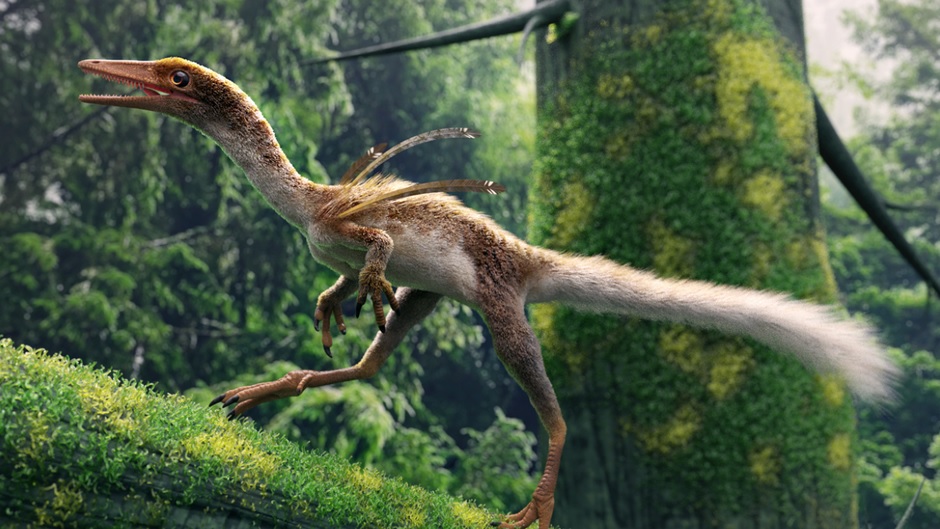The Natural History Museum of Karlsruhe, Germany, must return the fossil of the dinosaur Ubirajara jubatus to Brazil, illegally taken from the country by foreign researchers.
The Council of Ministers of the region of Baden-Württemberg made the decision. On Tuesday, July 19, they accepted a request made by the German Minister of Science, Theresia Bauer.
According to an assessment by the ministry, there are serious doubts about the legality of the acquisition of the fossil and its importation by Germany.
There will also be an investigation into other Brazilian specimens in the museum’s possession. The expectation is that they can also be repatriated.

According to a report in the German newspaper Badische Neueste Nachrichten, the German Ministry of Science was angered by the “unacceptable scientific misconduct of the museum”, which generated severe reputational damage to the institution and the country.
In the last 18 months since the species was first presented in a scientific article, the exotic image of the Ubirajara jubatus, with abundant feathers and four stems “hanging” from its shoulders, has become the symbol of the fight against international fossil trafficking.
The Brazilian scientific community has mobilized in an unprecedented way through the virtual campaign #UbirajaraBelongstoBR (Ubirajara belongs to Brazil) to denounce the various irregularities involving the departure of the fossil from Brazilian territory.
One of the creators and leading voices of the movement, Aline Ghilardi, a professor at the Federal University of Rio Grande do Norte, considers the announcement a victory for science in developing countries.
“We sent a compelling message that is echoing even in other regions of the world,” she says.
“We shouted to the world and said that it is possible to do a different science, decentralized, based on ethical principles. Collaborations [with foreigners] are very welcome, but as long as the benefits are symmetrical, where all parties receive the benefits,” she adds.
Signed by three foreign researchers, the scientific article that described the Ubirajara jubatus disrespected several points of Brazilian legislation, which established, since 1942, that fossils are a national heritage. It is forbidden to sell them, and formal authorization is required to take them abroad.
Although they initially claimed that the fossil left Brazil with proper authorization in 1995, the authors of the work could not present the appropriate documentation. Throughout the imbroglio, they presented other conflicting justifications that ended up not being supported.
Fuelled by pressure on social networks, the case generated great attention in the academic community and the international press.
Faced with the risk of reputational damage, universities, museums, and scientific journals began to review some of their conduct, requiring greater rigor with the proof of origin of materials.
The Natural History Museum in Karlsruhe was also forced to change its position, stating that it now takes the question of the origin of the pieces in its collection very seriously.
Initially, however, the institution refused to return the fossil to Brazil, saying that the material was the property of the German state.
Director of the museum until January, when he retired, paleontologist Eberhard “Dino” Frey is one of the authors of the Ubirajara jubatus paper. His successor, who has already announced he is leaving the post, Norbert Lenz, also signed the paper.
The German authorities have not yet said when they will send the material back to Brazil or under what circumstances this will happen. The destination of the dinosaur within Brazilian territory has also not been defined.
Although the negotiations have been made with the participation of the Plácido Cidade Nuvens Paleontology Museum in Santana do Cariri (Ceará state), the region where the dinosaur lived about 110 million years ago, reports in the German press state that the fossil could be sent to the National Museum in Rio de Janeiro.
The move has ignited a new debate among paleontologists, who point out that institutions in the Southeast concentrate many of the most valuable specimens, even though they come from the Brazilian Northeast.
The Director of the Cariri museum, Allyson Pinheiro, dismissed the existence of a dispute and emphasized the long history of collaboration between the two institutions. The paleontologist highlighted, however, the tremendous transformative potential that science has for the Crato region.
“The holotypes [reference specimens] are the most important part of a museum. Besides the scientific significance, they have a huge potential to attract tourism to turn the economy around. With a dinosaur as special as this one, which represented a fundamental cause, this is even greater,” he says.
Despite his enthusiasm, Pinheiro is still cautious in his celebrations. “I am thrilled, but the game is only over when it is over when the fossil is in Brazil. Our experience with repatriations is that this is a slow and bureaucratic process, even when done consensually.”
With information from Folha de S.Paulo

